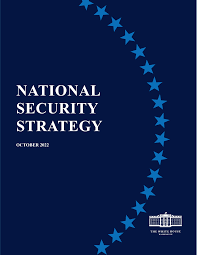 So, the International Studies Association (ISA) just concluded in Montreal after a visibly energetic in-person gathering following several years of virtual meetings only.
So, the International Studies Association (ISA) just concluded in Montreal after a visibly energetic in-person gathering following several years of virtual meetings only.
I was fortunate enough to chair the roundtable. All sorts of good folk attended including panelists: Arthur Stein, UCLA, Lou Pauly, University of Toronto, Yves Tiberghien, University of British Columbia, and Kyle Lascurettes, Lewis and Clark College. Unfortunately, our colleagues, Janice Stein could not join but I was fortunate enough to receive her speaking note and I have tried to reflect some of her thinking with the notes from other colleagues.
What didn’t surprise me, of course, during the session was the recognition from all that we have a fraught period of transition in the international system. There is the obvious Russian aggression against Ukraine and the challenge by Russia to some of the basic tenets of the current order – most notably territorial integrity and national sovereignty. There is also the obvious growing leading power tensions between the US and China and the growing threat of confrontation and conflict especially over Taiwan that currently stock the relationship. There was the obvious attention to US determination to sustain dominance even in the face of a dramatic power transition with the emergence of China and more broadly the Global South – India and other Indo-Pacific nations including Indonesia, etc. and other Southeast Asian states and then, of course, the return of Lula to Brazil.
But raw geopolitics did not dominate the discourse of the Roundtable. Equally significant in our discussions was the acknowledgement of the continuance of the intergovernmental institutions and collective actions of states to advance global order and achieve collective action within the framework of the current and evolving Order. While some decried the faltering of the global institutions, nevertheless, there was general acceptance that regional and other informal order-based institutions continued advance policies in various ways. AS one of my colleagues Kyle Lascurettes noted: “There is a truly global rules-based order that stands a good chance of outliving American hegemonic decline. But the so called “liberal” or “Western” rules-based order is and will be in trouble.” Indeed, the liberal order or the Liberal International Order (LIO) disappeared, I’d argue with the Global Financial Crisis” in 2008 but the Global Order does indeed remain. And, as Yves Tiberghien focusing on the dramatic power transition suggested: “today is a time of disruption and transition – a special phase. Major shocks, change, crises, innovation will take place over the next 1-2 decades … Also shift in awareness. Western dominated order was an anomaly of last 200 years, with a rise phase for 300 years before that. Return of multiple voices all over the world. Return to a diverse, polymorphic, poly polarity.” As Jagannath Panda recently wrote in an EAF blog on March 20, 2023: “Obituaries of the US-led liberal international order may be exaggerated, but the shift towards multipolarity is in motion.”
And what then do we have as the Global Order, and how will it advance. Arthur Stein recalled the fragile nature of the Order, which he described for me in his opening chapter of my 2008 edited volume – Can the World be Governed? The global order, he wrote then, and repeated at our Roundtable was: ‘a weakly confederal world’. As he said at the time (2008, 52) : ”In fact, one could argue not only that multilateralism is an existential reality but that weak confederalism is the nature of modern reality.”
So the LIO has faded, and what remains is the global RBIO (rules-based international order). Weaker and less collaborative – indeed as Arthur pointed out, the low hanging fruit of cooperation has passed and it is and will be increasingly difficult to reach collaborative solutions . But as Yves points out that there is continuing support for aspects of the Order including with China where Yves notes the significant China support for COP15 the Conference on Biodiversity where the multilateral conference came together to agree on a new set of goals to guide global action through 2030 and to halt and reverse nature loss and the recently concluded agreement on the text for the critical High Seas Treaty. The challenge for the leading powers is to maintain a forward collaborative thrust, and as Lou Pauly warned, it is critical for the US to accept: “The challenge is to overcome perennial tendencies toward either insularity or spasmodic over-extension, toward temporizing on necessary decisions, toward shifting the costs of adjustment to the relatively poor internally, and toward exporting the rest of those costs to other countries.” It will not be easy; and Arthur reminded us that American domestic politics has been a problem since 1919 and continues today with the failure to approve through the US Senate, international agreements and the often strained effort to use executive power.
As Janice Stein alludes to in her notes: “Plurilateral and minilateral institutions – from AUKUS to IPEF to Trade and Technology Councils will be the principal sites of innovation. I have called this process “taking it offsite.” New institutions are being stood up, led by the willing, who set rules and invite others to join if they wish. One could argue that we are entering a period of start-up innovation in the creation of new, smaller, more flexible, and more focused institutions.
Although Janice may be a touch pessimistic over multilateral collaborative action, the Global Order has its worked cut out for it to avoid great power conflict and achieve critical global governance policies in climate, global finance, global health and much more.
Image Credit: ISA

